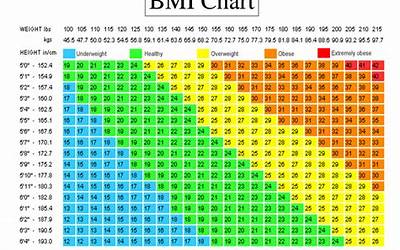
BMI, or Body Mass Index, is a measure of a person's weight relative to their height. It is a commonly used tool to assess whether someone is at a healthy weight or not. BMI is calculated by dividing a person's weight in kilograms by their height in meters squared. A BMI of less than 18.5 is considered underweight, 18.5-24.9 is considered a healthy weight, 25-29.9 is overweight, and 30 or above is classified as obese.。
If you are overweight or obese, losing weight can be challenging but can greatly improve your health. Focus on small changes to your diet and exercise habits, such as cutting back on snacks and increasing your activity level, to help you reach a healthy weight. Consult with a healthcare provider or registered dietitian for personalized advice and support.。
BMI计算公式及标准
BMI是身体质量指数(Body Mass Index)的缩写,它是一种简单但广泛应用的身体体态测量方法。BMI的计算公式为:。BMI = 体重(kg)/ 身高²(m²)。其中,体重以千克为单位,身高以米为单位。BMI的数值范围如下:。BMI < 18.5:体重过轻。18.5 ≤ BMI < 24:正常体重。24 ≤ BMI < 28:超重。BMI ≥ 28:肥胖。需要注意的是,BMI是一种估算身体体态的方法,但并不能反映身体成分的具体情况,例如肌肉、骨骼等。同时,对于儿童和老年人群体,BMI的参考标准也有所不同,需要根据实际情况进行评估。









